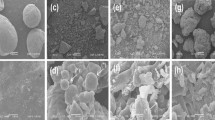Abstract
THE starch equivalent or net energy system, which is the basis of livestock rationing in Great Britain, measures the nutritive value of feeds in terms of the body storage of energy which occurs when they are given to fattening cattle. Only a small number of respiration chambers and calorimeters are available for work with large animals, and the expense and labour involved in their operation limit the number of experiments which can be carried out. Consequently, published values1 are either the original ones of Kellner2 or crude estimates based on determinations of digestibility of the feed by sheep.
This is a preview of subscription content, access via your institution
Access options
Subscribe to this journal
Receive 51 print issues and online access
$199.00 per year
only $3.90 per issue
Buy this article
- Purchase on Springer Link
- Instant access to full article PDF
Prices may be subject to local taxes which are calculated during checkout
Similar content being viewed by others
References
Bull. Min. Agric. London, No. 48 (1933) and No. 124 (1952).
Kellner, O., “Die Ernahr. landw. Nutztiere” (Paul Parey, Berlin, 6th edit., 1912).
Sobermann, R., Brodie, B. B., Levy, B. B., Axelrod, J., Hollander, V., and Murray Steel, J., J. Biol. Chem., 179, 31 (1949).
Author information
Authors and Affiliations
Rights and permissions
About this article
Cite this article
BLAXTER, K., ROOK, J. Indirect Determination of Water Retention in Cattle as a means of estimating Energy Exchange. Nature 171, 609–610 (1953). https://doi.org/10.1038/171609b0
Issue Date:
DOI: https://doi.org/10.1038/171609b0
Comments
By submitting a comment you agree to abide by our Terms and Community Guidelines. If you find something abusive or that does not comply with our terms or guidelines please flag it as inappropriate.


